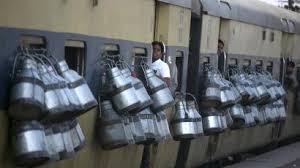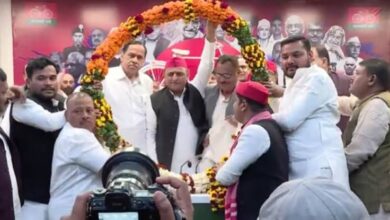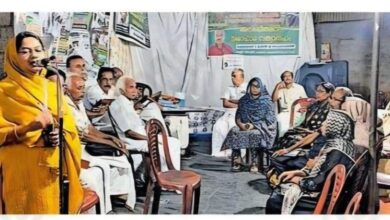DITHERING DAIRY DEMAND AND DOUBLING FARMER’S INCOME
Farmer first. Bharat First

Devendra Chaudhry
(Former Secretary Animal Husbandry, Dairy & Fisheries, Ministry of Agriculture, Government of India)
The reduced demand for FMCG sector products in Covid times is passé. Any number of figures can be put on a pedestal for honorific view. Milk and Dairy products like butter, ghee, cheese, paneer (referred hereinafter to as ‘dairy products’) are no exception. The incomes of more than 7 crore village house-holds depending on milk income in this country is at stake, most of whom are small and marginal farmers eking out a living from about 14.6 crore land holdings. Doubling the income of these milk-marginal land holder farmer, was one of the first goals off the mark in 2014 May. So, what is the challenge then to this cherished goal in Covid times.
The single most challenging fact is: the perishability of the produce as against other food / FMCG products unlike even other agri-products like grain or cereals. Like fruits and vegetables milk is perishable the moment it leaves the udder (about a 100 million bacteria start attacking the milk sugars as soon it gets squirted from the udder in a can). Therefore, while the farmers cannot store the product, on the other hand they are forced to sell cheap.
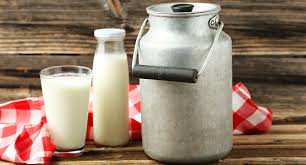
Even in the non-Covid times, winters present such challenge routinely year-after-year due to natural increased per animal yield in the winter months (about 20% to 25%) as compared to the summer period. The double tragedy in May 2020 is that even in summer it is winter for the milk farmers and sellers due to suppressed consumption. This translates into poor incomes like for other farm products in the troubled present.
Possible Solutions
So, what does that mean for the possible solutions to the challenge in the context of not doubling farmers income but at least sustaining some recent albiet small gains. To begin with, the government has done good by providing interest subvention of 2%+2% (basic and timely payment) to cooperative dairies who have in their limited means stepped in to fill the gap left by the private sector (annual milk procurement is shared by cooperatives and the private sector in the range of 24%-27% each of the total milk produced in the country – 187.7 MMT in 2018-19 about 52% of which is only surplus saleable milk).
So what else can be done. Well, quite a few things – some short term, some mid and more importantly some long term.
For now, let us talk short term. To begin with and for whatever it is worth, the working capital interest subvention offered to the cooperative sector could be offered to private counterpart also. For parallel, the government has announced a funding package of Rs16,686 crores for the dairy infrastructure modernisation for the private sector covering dairy, meat processing industry and feed/fodder industry. In fact, this is in line with the first salvo of Rs 10,000 crores fired in 2017 when the Dairy Infrastructure Development Fund (DIDF) was created with a NABARD housed corpus with interest subvention.
This was followed by a Rs 7000 plus crores in 2018 for funding fishing harbours and related infrastructure development. Suffice it to say these are true responsible substantial assistance products from the government side given the limitation in budgetary cash support and the parallel need of accountability of the assistance given to the beneficiaries as compared to budgetary grants. In this background therefore, it makes sense to now offer working capital assistance to the private sector which as said is not a very unequal partner to the cooperative in the procurement value chain. To be practical, one could start by just half the size of what is offered to the cooperative sector given that we are in mid-year.
The second measure to shore up demand is to enable supply of milk and milk products as a major item in the Rs 12,054 crores (2019-20) mid-day-meal scheme in a targeted manner, hitherto done randomly.
The third measure comprises SMP and White butter imports / exports which is a contentious issue because, fact remains that Indian SMP is typically higher priced than the international market (ranging from 10-15% in good times). Therefore, there is need to resist imports of SMP as advocated by some industry quarters, notwithstanding the higher priced domestic product. And such a policy would support Atmanirbhar and Make in India Bharat.
Fourthly, it would be worthy to consider giving support to export of milk products (SMP, packaged milk, processed products like cheese, flavoured milk, curd, ice-cream etc) given that fact that India has less than 1% share of global milk and milk products product even though it produces more than 18% of the world’s milk – World #1). Off course the issues of WTO may need to be handled as we go along. But the moral of the story should not be lost of. Which is, support the sector, market and product wide. Across country, Across the product. And, across the next five years, so that there is policy consistency leading to sustained investment and ROI (read replacing China).
Finally the fifth step – Make whatever possible efforts in using milk and milk products as a small part of rural wages (government has announced an additional Rs 1 lac crores in MNREGA assistance) and the plethora of quarantine related food assistance required with the return of the migrants to their homes.
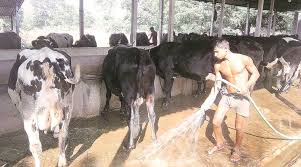
Let it be clear. There are no ideal solutions and no utopia round the corner or the next quarter or the one next to it. We are in the thing for the short term, for the mid-term and definitely for the long term. Which brings me back to where I began. Start today for a better tomorrow. Farmer first. Bharat First. Let us arrive post Covid with the shirt still on.
Let it be clear. There are no ideal solutions and no utopia round the corner or the next quarter or the one next to it. We are in the thing for the short term, for the mid-term and definitely for the long term. Which brings me back to where I began. Start today for a better tomorrow. Farmer first. Bharat First. Let us arrive post Covid with the shirt still on.
Please also read : https://mediaswaraj.com/india_in_chaos_asad_mirza/
(VIEWS EXPRESSED ARE PERSONAL)
कृपया इसे भी पढ़ें : https://mediaswaraj.com/mr-prime_minister_rail_mister_listen_workers/

